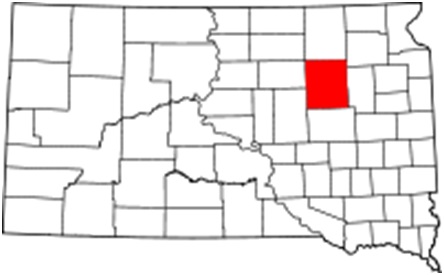A huge unsolved problem with nuclear power is the disposal of spent nuclear fuel. The cooling pools of the U.S. nuclear power reactor fleet are filling up with spent nuclear fuel and there is no permanent geological repository. The federal government was suppose to have one build by 1999. They were working on one in Nevada at Yucca Mountain but the project was cancelled in 2009 and now it will be at least 2050 before the U.S. has one that is operational. Some countries, such as Australia, are considering the construction of such a repository that could take spent nuclear fuel from other nations but nothing tangible has been done to date. Other methods of disposing of spent nuclear fuel are also being considered.
One possible solution to the disposal problem is to drill a well five miles deep in solid stable and insert spent fuel assemblies up to about three miles below the surface. The hole can then be filled with concrete, crushed rock and/or asphalt up to the surface. The rock around the sequestered fuel assemblies would be impermeable to ground water and the waste would be safely and permanently isolated from the environment. Much of the eastern half of the U.S. which contains most of the power reactors is sitting on the proper kind of rock for the proposed wells. Drilling rigs could be moved around to different reactor sites and used to drill down and dispose of the spent fuel from the reactor(s) on the site. This could be done over time and the cost would be reasonable and spread out.
Battelle, a non-profit research organization based in Ohio has a thirty four million dollar contract with the Department of Energy to drill a test well. The Deep Borehole Field Test calls for drilling a narrow-diameter hole three miles down into solid granite. If successful, then a wide-diameter hole would be drilled. The locate for the test wells is in Spink County, South Dakota.
Unfortunately, despite promises to the contrary, many citizens of Spink County simply do not believe that the government is going to spent millions of dollars on test wells and then just close them up without storing any nuclear waste in them. Citizens for a Non-Nuclear South Dakota is just one of the grass roots organizations which have sprung up to stop the drilling project before it even begins. One of the objections raised is that the project is located in farming country. There is great fear in the area that the tests and any possible storage of spent fuel could contaminate the ground water used for drinking and farming. The wells would have to be drilled through two aquifers but proponents said that steel pipes would seal the wells off from the aquifers.
To allay fears that radioactive material will be involved in the test drilling project, Battelle has offered to sign a pledge to the citizens of Spink County that no such materials will be used in the project. Battelle promises that it will drill the holes, close the holes and leave Spink County permanently when the project is done. They also offer to have a third-party inspector chosen by the county come and monitor the site to insure that no radioactive materials are ever used. If the tests are successful, any such waste disposal will not be undertaken for at least a decade and will be hundreds of miles from the proposed project site.
The state government supports the project. The ultimate decision will be up to the Spink County government which will have to issue a special permit for the project. An earlier proposal to drill a test well in Pierce County, North Dakota was rejected by their county government.
Spink County, South Dakota:
